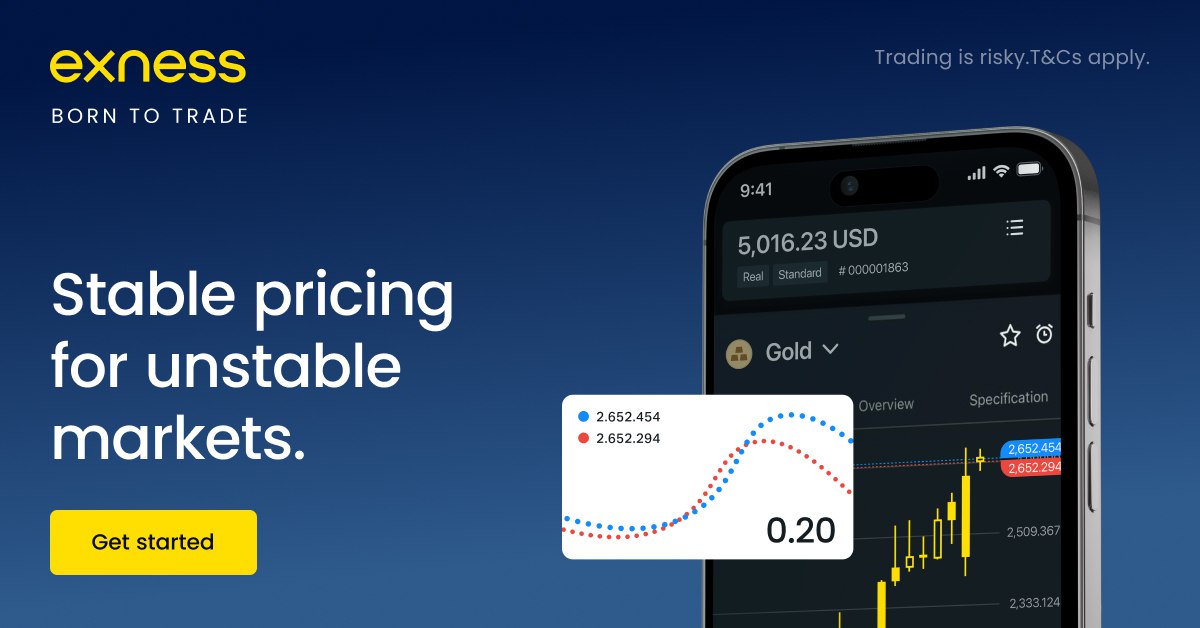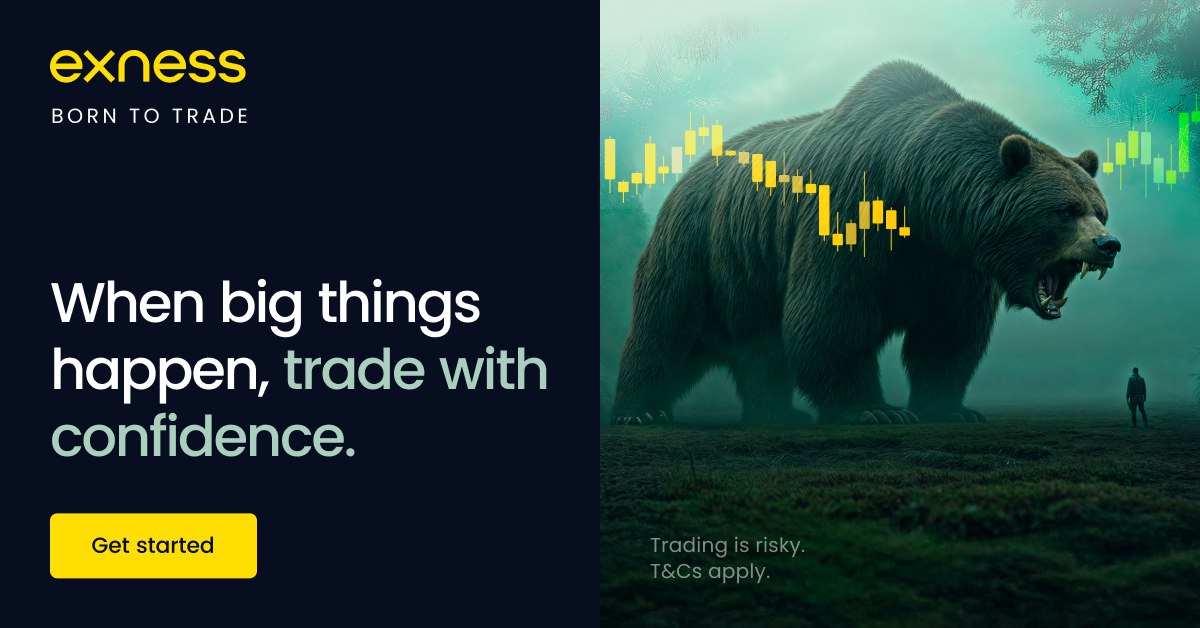
4 minute read
What is period of high margin requirements in EXNESS
So, what is the period of high margin requirements in EXNESS? When does it happen? And how should you trade during this time?
👉 Open your EXNESS account and manage margin smartly

🔎 What Is the High Margin Period?
The period of high margin requirements refers to a short timeframe during which EXNESS temporarily increases the margin requirement (i.e., reduces leverage) for open positions.
This usually applies:
15 minutes before and after key financial news releases
1 hour before market close on Fridays
30 minutes after market open on Mondays
During these windows, leverage is restricted to maximum 1:200 or lower, depending on the instrument.
This is done to minimize volatility risk, especially when spreads widen, slippage increases, and prices move sharply.
📅 When Exactly Does It Occur?
EXNESS applies high margin periods around:
Major economic news releases — such as US Non-Farm Payroll (NFP), CPI, interest rate decisions
Weekends and holidays — where markets are thin or closed
High-impact trading sessions — when liquidity drops and volatility spikes
You’ll receive alerts in your EXNESS dashboard or on the economic calendar to prepare for upcoming changes.
👉 Get started and learn live margin conditions on EXNESS

How Does This Affect Traders?
During this period:
Your existing leverage (e.g., 1:2000) is temporarily reduced
You’ll need more margin to maintain open trades
New positions must comply with reduced leverage limits
If you don’t have enough margin, your trade may face stop-out or auto-close
This makes risk management essential. Traders are advised to either:
Close or reduce exposure before the period
Increase balance or margin
Avoid opening large trades just before high-impact news or weekends
✅ How to Prepare for High Margin Periods
Use EXNESS economic calendar to track major events
Adjust lot sizes and leverage before the margin increase kicks in
Use stop-loss and take-profit tools wisely
Monitor free margin and equity ratio in real time
Avoid trading breakouts blindly during news events
✅ Final Thoughts
The period of high margin requirements in EXNESS is a crucial risk-control tool to prevent extreme losses during volatile market conditions. While it may feel limiting, it ultimately protects traders from over-leveraging and unexpected slippage.
As long as you manage trades smartly and stay updated with market timing, you can trade smoothly without being impacted negatively.
👉 Join EXNESS and access live trading conditions with margin protection

Frequently Asked Questions (FAQs)
1. What is the maximum leverage during the high margin period in EXNESS?Leverage is temporarily reduced to 1:200 or lower, depending on the trading instrument.
2. How long does the high margin period last?Usually 15–30 minutes before and after major economic news, or 1 hour before weekend market closure.
3. Will my open trades be affected?Yes, margin requirements will increase even for existing open positions.
4. Can I change leverage manually during this time?No. EXNESS automatically applies margin rules based on timing and asset class.
5. What happens if I don’t have enough margin during this period?Your position may face stop-out, resulting in forced closure to prevent larger losses.
6. Does this apply to demo accounts?Yes, demo accounts follow the same trading conditions as real accounts, including margin changes.
7. How do I know if a margin spike is coming?Check EXNESS’s economic calendar and your dashboard alerts regularly.
8. Can I avoid trading during high margin periods?Yes, many traders avoid opening new positions before news releases or weekends to reduce risk.
9. Does EXNESS notify users before the margin change?Yes. Traders are usually informed via email, dashboard popups, or platform messages.
10. Are all trading instruments affected equally?No. Only instruments with high volatility or news exposure are affected — mainly forex majors, gold, and indices.
See more:
how to create Exness Real Account
how to use EXNESS social trading
How does EXNESS Social Trading work?









